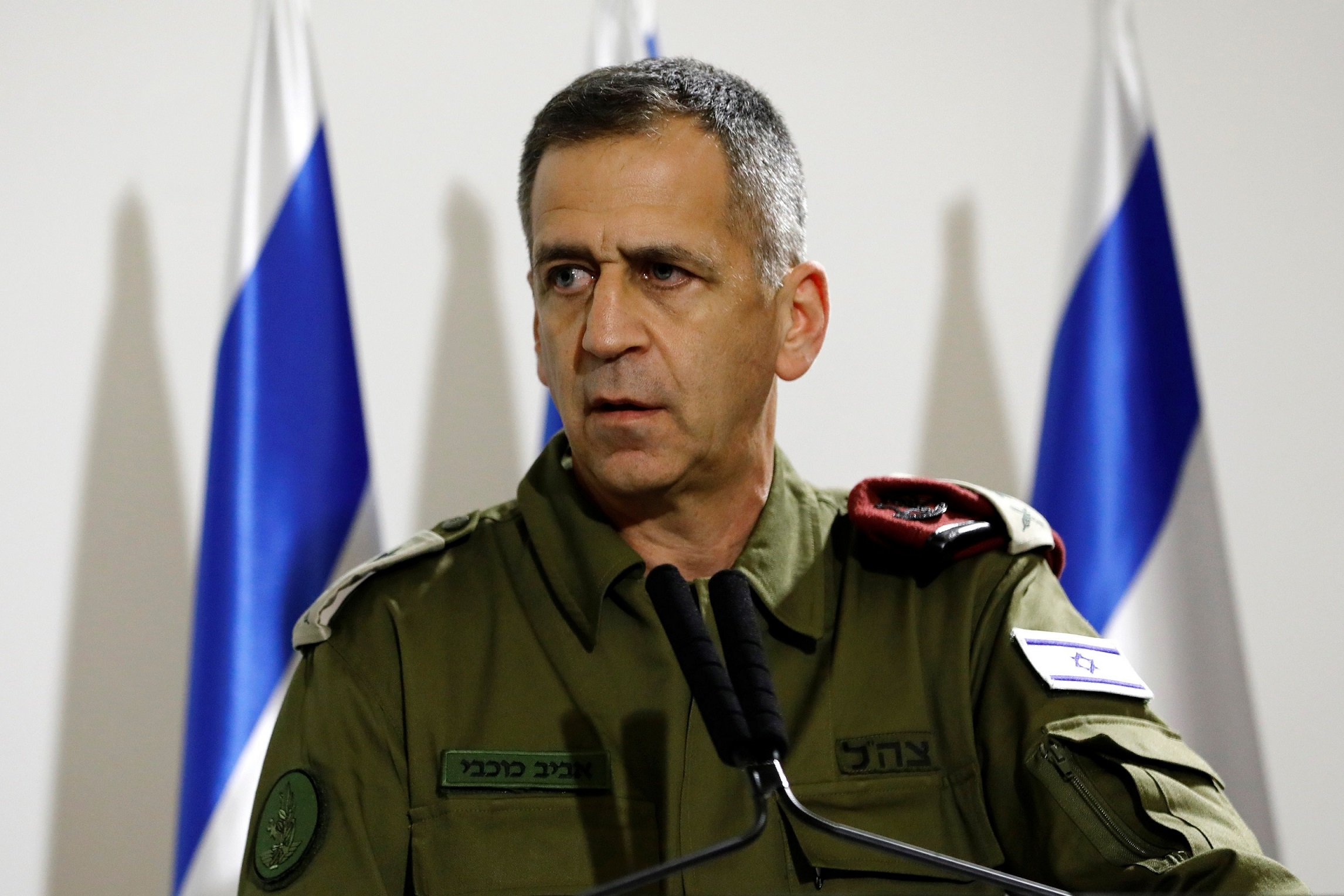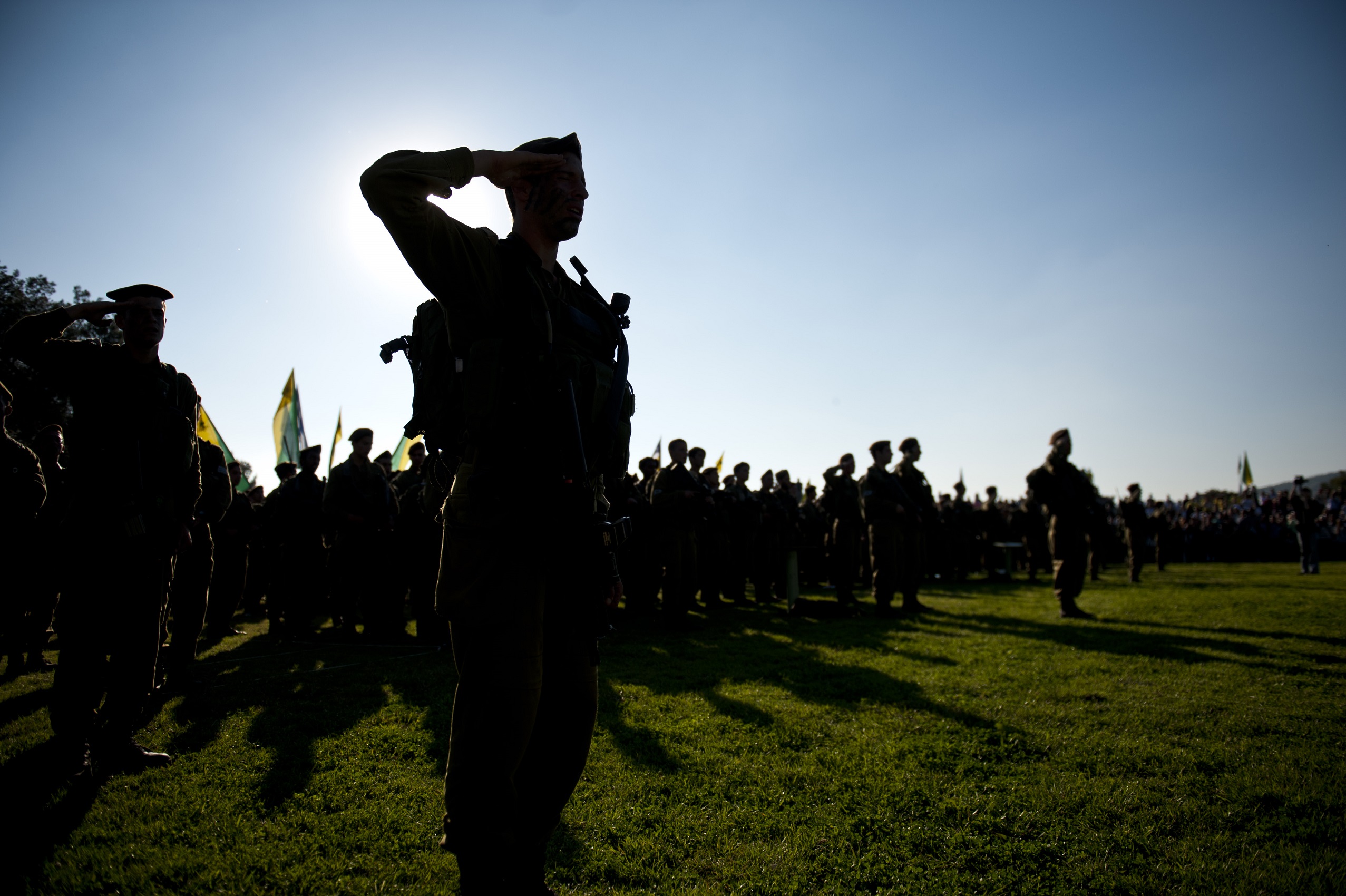Publications
INSS Insight No. 1625, August 2, 2022
The IDF recently decided to add the value of “stateliness” to its ethical code, presented in “The Spirit of the IDF.” The addition states that “The IDF is the people’s army, a stately army, subject to the law and to the government. IDF soldiers will act only in accordance with the mission, IDF values, and the imperatives of national security; they will do so in a principled, straightforward, and exemplary manner.” The term “stateliness” (mamlachtiyut in Hebrew) is vague: in its Ben-Gurionist sense, i.e., that the IDF is under the responsibility and control of the state and not of any political organization, it is undisputed; this principle is enshrined in law and in IDF documents. If stateliness is meant to be a framework for guiding principles for proper IDF conduct, then the wording employed to clarify it is less clear and comprehensive. If the term is intended as a public relations move seeking to maintain the Israeli public’s support and trust in the IDF, this is a highly dubious goal in the current polarized reality. In order to achieve this objective, the IDF must carefully maintain its apolitical status, both in action and appearance. Politicians and the media as well must relate to the IDF as a body that operates outside the realm of politics. This seems to be the greatest challenge.
The IDF recently decided to add the value of stateliness to its ethical code, presented in “The Spirit of the IDF.” The wording, chosen by the Chief of Staff, states that: “The IDF is the people’s army, a stately army, subject to the law and to the government. IDF soldiers will act only in accordance with the mission, IDF values, and the imperatives of national security; they will do so in a principled, straightforward, and exemplary manner.”
“The Spirit of the IDF" was introduced in 2001 as an adaptation of the IDF’s summary of its fundamental values, approved in 1994. It is meant to serve as the IDF’s ethical code, and as a guideline for the rules of conduct. It is cast as the army’s value-based identity card and as the ethical basis for its activities. Until now, the “Spirit of the IDF” was defined by three fundamental values: defense of the state, its citizens, and residents; patriotism and loyalty to the state; and human dignity. Now the value of stateliness has been added. Alongside these fundamental values there are other values relating to the use of force, including: dedication to the mission and striving for victory, responsibility, credibility, personal example, the value of human life, the purity of arms, professionalism, discipline, comradeship, and a sense of mission.

Along with the “Spirit of the IDF,” in 2004 the IDF formulated an additional document entitled "The Purpose and Uniqueness of the IDF," which includes some statements that are relevant to the topic of stateliness in its social and political contexts, including: recognizing the existence of diverse and opposing perspectives on the desired character of Israeli-Jewish identity and national identity, the connection to the Land of Israel, and the meaning of the IDF as the people’s army. The document does not belie the absence of a national consensus and ideological polarization in Israeli society, which displays vacillating and divergent trends in the changing political reality.
What is meant by value of “stateliness,” in Hebrew, mamlachtiuyt? The term is vague and can be variously interpreted. The first to use the term was David Ben-Gurion, in 1928. Upon the establishment of the state in 1948, Ben-Gurion, Israel’s first Prime Minister and Minister of Defense, assigned this term a central role in his concept of the state’s proper structure, particularly regarding management of major areas of civilian life. Thus, responsibility for the areas of security, education, health, and other essential services, which prior to the state’s establishment were in the hands of political parties or public sector bodies, were now transferred to the state. From this perspective there is no particular added benefit to the inclusion of stateliness as a fundamental IDF value, since it has long been defined and clearly understood in the Basic Law: The Army, and in several official IDF documents, including the original “Spirit of the IDF.”
Based on the IDF’s comments on the current decision, it seems that the term “stateliness” is intended to serve a different purpose from Ben-Gurion’s concept of the army’s status. The current concept of stateliness refers to the conduct of the organization, in this case, the IDF, not its status. This is similar to the ethics documents of the Israel Police, the General Security Service, the Mossad, the Ministry of Defense, and the Israel Prison Service – and now of the IDF as well. The role of the term “stateliness” in these documents is to express ideas about the proper conduct of a state organization as such.
However, the addition of the value of stateliness to the “Spirit of the IDF” does not truly clarify its terminological ambiguity. The somewhat clumsy definition and its accompanying explanations of stateliness list some of the components of the concept of organizational stateliness as a guideline for the proper conduct of an organization that is an arm of the state. However, this is not done in a clear and explicit fashion. For example, is it correct to begin the definition of stateliness with the words “the people’s army, a stately army”? The term “people’s army” has various meanings given the changing circumstances of Israeli society – as in the context of compulsory IDF service – making it problematic not only because of its unclear meaning but also because of its uncertain connection to the shifting reality. Furthermore, how can the expression “a stately army” be used in the definition of the concept of the expression “stateliness” in its military context? A definition is meant to clarify a concept; it cannot use the defined word in order to clarify it.
The Chief of Staff saw fit to accompany his statement on the addition of “stateliness” with a special signed message, in an attempt to explain broadly and authoritatively the meaning of stateliness according to the IDF approach. In explanatory remarks he added to the definition the well-known principle that the IDF and those who serve in it must totally refrain from political, partisan, and ideological disputes. He also referred to the important idea, which is not yet universal, about the need for IDF sensitivity to the “personal identity” of each male and female soldier, particularly during mandatory service, which the IDF must accept as is and fully respect in practice.
The most interesting passage in the Chief of Staff’s remarks states that “the IDF is the people’s army, which draws both its inner strength and its backing from society from the justice of its path, from fulfilling its mission to defend the state and its citizens, and thanks to its operation in an ethical and stately manner." All this, he adds, "grants the soldiers, their parents, and the citizens of the state a sense of security and trust in the IDF. This is why it is our duty to cultivate the value of stateliness” (emphases added). This statement is worthy of note.
Typically, the inclusion of values in an organization’s ethics is justified by their inclusion in the organization’s mission, or in the methods its uses to carry out its mission, or in the spirit of its social contract, which imposes on it demands such as human dignity or the rule of law. In this case, the Chief of Staff’s reasoning regarding the purpose of the stateliness value does not necessarily derive from the IDF’s mission or from the values of the societal envelope within which it operates. In his view, the cultivation of stateliness is meant to enable the IDF to win the trust of those who serve in it, their families, and the citizens of the state. The public’s trust is regarded as one of the components enabling the IDF to carry out its mission successfully, in addition to professionalism, discipline, and comradeship. Consequently, every officer and soldier must act in a manner that strengthens the public’s trust in the IDF, as well as the citizens' confidence in the propriety of its actions. This trust should not be perceived as a popularity index that fluctuates over time like poll results, but rather as a matter of public awareness, which is regarded as contributing to the army’s professional and ethical quality.

Since the move to promote the value of stateliness in the IDF is meant to enhance the public’s trust in the IDF, it is highly doubtful whether the Israeli public is likely to take it seriously. Public interest in such theoretical issues is very low. Yet the move might still succeed if three conditions are met. First, the IDF must preserve its apolitical positions and status, carefully refraining – both at the organizational level and at the individual level, especially among senior officers – from any activities or rhetoric that adopt a partisan, political, or ideological stance. Second, the IDF must impart to its soldiers, especially its commanders, the practical implications of stateliness as a reflection of the quality of its organizational conduct. This involves both clarifications of the value of stateliness and its rigorous enforcement, including punishment of those who act improperly and express themselves publicly in violation of this fundamental value. And third, both politicians and the media must relate to the IDF as a stately, apolitical body. If these conditions are fulfilled, the addition of the principle of stateliness to the “Spirit of the IDF” will be meaningful. The military has a clear interest that this occur.
Finally, the IDF’s decision to update its ethical document, “The Spirit of the IDF,” is noteworthy. When the document was first approved in 2001, then-Chief of Staff Shaul Mofaz determined that it should be revisited every five years. It has taken twenty years for this discussion to take place, focusing on the value of stateliness. The move is welcome, albeit belated, and in the future the IDF ought to revisit its ethical document on a regular basis.



